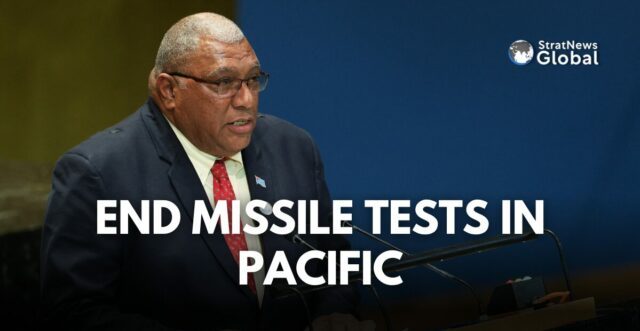Fijian President Ratu Wiliame Katonivere has called for an end to missile tests in the Pacific Ocean, urging respect for the region after China launched an intercontinental ballistic missile (ICBM) earlier this week. In a speech at the United Nations General Assembly on Thursday, Katonivere referenced the Pacific’s troubled history as a nuclear weapons testing ground and emphasised the need for protecting the region from further militarisation.
“We urge respect for our region and call for cessation of such action,” Katonivere said, highlighting the missile test conducted by China on Wednesday, which involved a dummy warhead and landed in the Pacific Ocean.
Concerns From Pacific Leaders
The missile launch has sparked concern across the Pacific. French Polynesian President Moetai Brotherson expressed surprise and worry after learning about the missile test through the media. The missile reportedly fell 700 km (435 miles) from French Polynesia’s exclusive economic zone (EEZ), prompting Brotherson to send a protest letter to the Chinese Embassy. Despite China notifying France in advance, the proximity of the missile to French Polynesia raised alarms about the vulnerability of smaller territories in the Pacific.
Similarly, New Zealand Foreign Minister Winston Peters expressed concern, while Australian Treasurer Jim Chalmers raised the issue in a meeting with Chinese officials in Beijing.
Historical Context And Regional Impact
Katonivere’s remarks remind the international community of the Pacific’s painful legacy as a nuclear testing ground, particularly during the Cold War when the region was used for nuclear detonations by several global powers. The latest missile test, while conducted in international waters, has revived fears of further militarisation and environmental risks in the region.
As tensions escalate globally, Pacific nations are increasingly urging the world’s major powers to consider the environmental and geopolitical impact of such tests on their region.
(With inputs from Reuters)
















